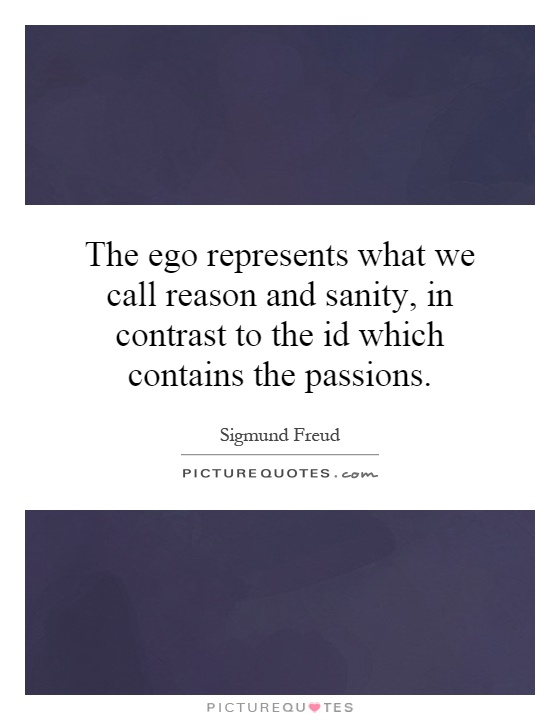The ego represents what we call reason and sanity, in contrast to the id which contains the passions

The ego represents what we call reason and sanity, in contrast to the id which contains the passions
Sigmund Freud, the father of psychoanalysis, introduced the concept of the ego, id, and superego as the three components of the human psyche. According to Freud, the ego represents the rational and conscious part of the mind, which is responsible for mediating between the demands of the id, the unconscious and instinctual part of the mind, and the superego, the moral and ethical component.The ego can be seen as the executive of the mind, making decisions based on reality and reason. It is the part of the psyche that helps us navigate the external world and make sense of our experiences. The ego operates on the reality principle, which means it seeks to satisfy the id’s desires in a way that is socially acceptable and in line with the constraints of reality.
In contrast, the id is driven by the pleasure principle, seeking immediate gratification of its desires without regard for consequences or social norms. The id is the source of our primal urges and instincts, such as hunger, thirst, and sexual desire. It operates on a primitive level, seeking to fulfill its needs without considering the long-term consequences.
Freud believed that the ego’s role was to balance the demands of the id and the superego, which represents our internalized moral values and societal norms. The ego acts as a mediator between these conflicting forces, striving to find a compromise that satisfies both our instinctual desires and our moral conscience.












 Friendship Quotes
Friendship Quotes Love Quotes
Love Quotes Life Quotes
Life Quotes Funny Quotes
Funny Quotes Motivational Quotes
Motivational Quotes Inspirational Quotes
Inspirational Quotes